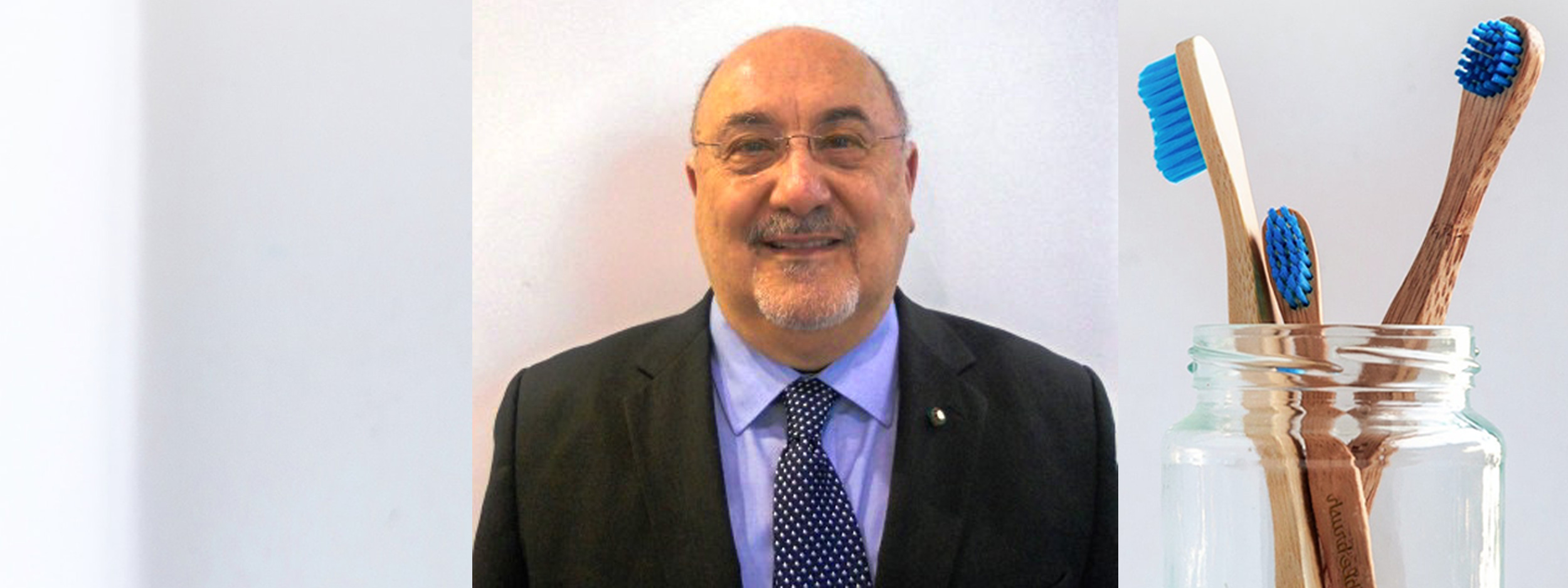On August 17, dentist and MG patient Dr. Gene Cassagrande led a Wellness Webinar focused on having a successful dentist visit when you have myasthenia gravis.
Dr. Cassagrande practiced dentistry for 30 years before transitioning into a role as a medical device salesperson. With his deep knowledge of dentistry and his lived experience with MG, Dr. Cassagrande was the perfect person to share some tips and advice.
Here are some of the highlights of his talk:
- Don’t avoid or fear dentistry! Good dental health is important for your overall health. Be mindful that stress can exacerbate MG, so try to stay calm and relaxed about your appointment.
- Communication with your care team is vital. Make sure everyone in the office – from the receptionist to the hygienist and dentist – know you have MG. Don’t just write your diagnosis on the intake form and leave it at that. Make sure the team knows what your symptoms and limitations are, as well as any medications you take. Let them know how you’re doing at the time of your visit.
- Share the MGFA brochure, “Dental Treatment: Considerations for the Dental Care Team.”
- If you like, you can set up a consultation appointment to talk with the dentist about MG, ask questions about their practice, and share any concerns in advance of getting treatment. This may help you find the right doctor to meet your needs.
- If your MG is controlled, you may only need modest accommodations at the dentist’s office. (If your MG is not well managed and you need dental care, you may need to be seen in a hospital setting.) Some modest accommodations include:
- Tip the chair back just to your comfort level.
- Ask to use a rubber mouth prop to help keep your mouth open and relaxed.
- A rubber dental dam can be helpful for restorative procedures. It prevents water and debris (i.e. from a filling) from going down your throat and can help prevent choking.
- Don’t be afraid to stop an appointment if you start to feel too weak to continue. A dentist can pause any treatment or procedure and resume another time.
- If you need an anesthetic, talk to your dentist about how to minimize numbing of the tongue and lips. For instance, if you need full-mouth restorative work, the dentist can do this work in stages to avoid doing a mandibular block (lower jaw anesthesia) on both sides of the lower jaw at the same time.
- Be sure to carry a list of medications that are contra-indicated with MG and share with your dentist and hygienist before any procedures. You can also email them the link to add to your chart.
- Steroids and immunosuppressants may cause intra-oral infections. A dentist may prescribe antibiotics but avoid Cipro – it’s contraindicated for myasthenics. Never be afraid to run questions about new medicines by your neurologist.
- Any time you need major oral surgery, make sure you have an attending dentist-anesthesiologist, not just the oral surgeon. People with MG must take special care when under general anesthesia.
- Tools are available for MG patients if traditional flossing and brushing are difficult due to muscle weakness. Try an electric toothbrush, a water pick, floss holders, and mouthwash.
- Don’t be afraid to run questions by your doctor or neurologist. Don’t be afraid to get a second opinion or change dental offices to find a caring staff who will pay attention to your needs. Be your own advocate.
- Prevention is essential so see your dentist! Watch Dr. Cassagrande’s webinar for more advice on dental health for myasthenia gravis patients.
Watch Dr. Cassagrande’s webinar for more advice on dental health for myasthenia gravis patients.

